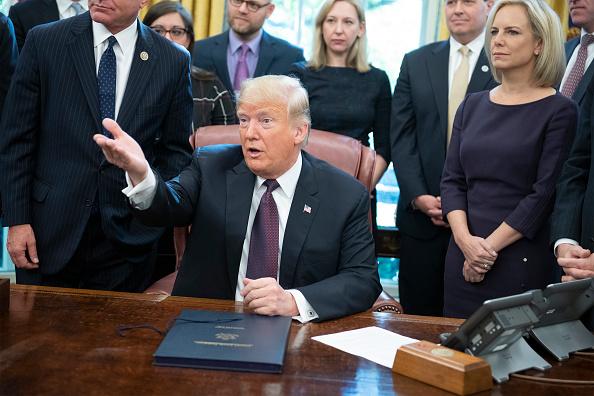WASHINGTON—U.S. President Donald Trump said on Nov. 16 that he may not impose more tariffs on Chinese goods after Beijing sent the United States a list of measures it was willing to take to resolve trade tensions, although he added it was unacceptable that some major items were omitted from the list.
Trump has imposed tariffs on $250 billion of Chinese imports to force concessions from Beijing on the list of demands that would change the terms of trade between the two countries. China has responded with import tariffs on U.S. goods.





